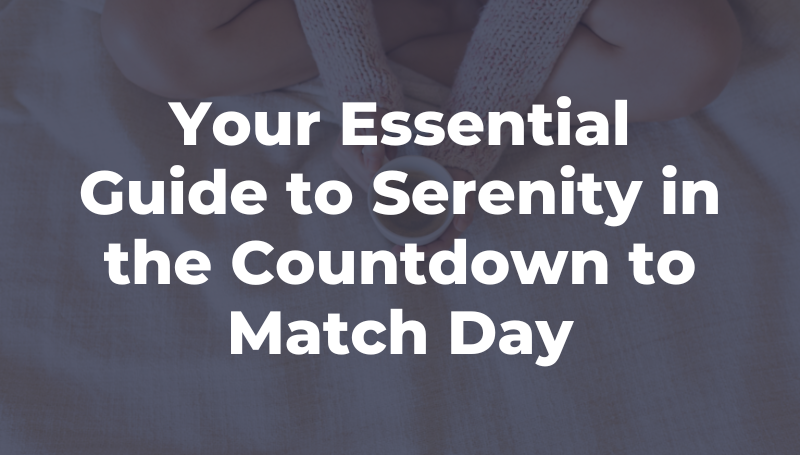
It’s Match Week, and for medical students, that means you’re waiting in anticipation for news that will shape your future. It’s hard being at the mercy of an algorithm, especially when you’ve worked so diligently in school. Though the wait is tough, we have seven suggestions to help you make it through the week:
Release control
High achievers like you must be intentional about letting go of things outside of their control. Seek serenity, practice yoga, or set aside time for mindful reflection—whatever helps you recognize and accept that the match is out of your hands.
Shake it off, literally
It’s amazing how exercise relieves stress. In addition to boosting endorphins, a workout counteracts the inaction of waiting, giving you a physical outlet for pent-up frustration. Whether it’s a simple walk around the block or a session of kickboxing, physical activity will do you good.
Spend time with your people
Your support group includes family, friends, and even your pets. Let your pals bolster your mood both in person and online. For a lift you can access anytime, anywhere, invite social media contacts to populate your feed with cute animal videos, bad selfies, ridiculous GIFs, or encouraging memes.
Perform random acts of kindness
Studies show that making a little extra effort to help others reduces anxiety. Evidence suggests that the momentary focus on another’s well-being is an effective distraction from your own worries. Compassion is also found to stimulate the release of oxytocin, which produces a calming effect.
Arrange small victories
You may not have control over which residency you’ll be matched with, but there are things you can control, such as preparing a delicious meal, starting a creative project, or even cleaning out a closet. Completing small tasks will give you a much-needed feeling of accomplishment and control.
Spend time with your pet
The companionship of a pet, along with the routine of caring for one, creates a sense of security and increases oxytocin levels in the brain. If you don’t have a pet of your own, spend time with someone else’s. You’ll gain many of the same stress-relieving benefits.
Don’t assume the worst
Preparation is the key to success in many things, but not when it comes to bad news. One study showed that preparing for the worst increases your anxiety rather than lowering it. It’s better for your stress level to assume things will work out, regardless of the outcome.
Remember, you have what it takes to master this hurdle—one of many to come in an exciting and challenging career.


